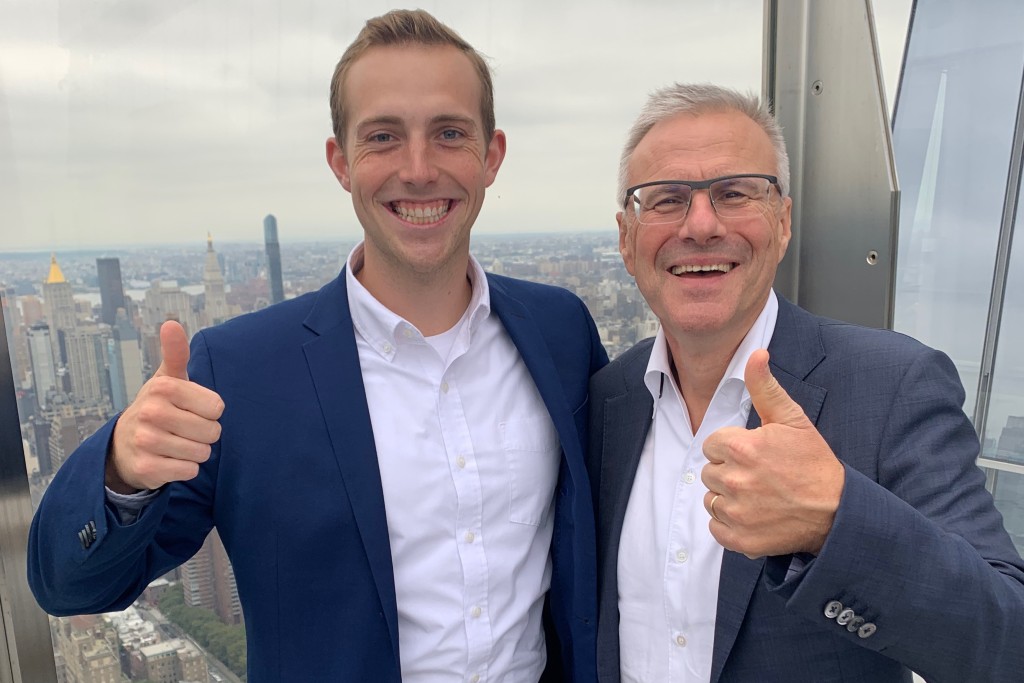Labour shortages have made headlines across the globe, from truck drivers in the U.K. to construction workers in the US. But this is not just a blue-collar worker problem. Many companies are facing shortages in the white-collar space.
In Italy, the competition for talent, especially in the IT space, remains tough amid a serious skills shortage. According to a report by CompTIA, the nonprofit association for the information technology industry and workforce, the EU saw an increase of 9% of job postings for technology positions during Q1 2021 compared to Q4 2020 and an increase of 40% compared to Q3 2020, reflecting the hiring freeze in 2020, and then resurgence in 2021. In Italy specifically, the number of tech job postings in Q1 2021 increased by 50% compared to Q4 2020.
In addition, Italy has the highest proportion of young people aged 20-34 who are neither in employment nor in education and training in the entire EU, standing at almost 30% in 2020. With an aging population and the lack of tech skills coming out of the education system, there’s a noticeable disconnect between the demand for certain skills – and the supply of skills on the market. The digital transformation, accelerated by the pandemic, has pushed demand even higher. Businesses across Italy are fighting to attract the same pool of candidates.
“To win over the right candidates with the right skills for our clients in the consulting sector, the Adecco Group acts as a strategic advisor, able to go beyond traditional talent pools and instead taking a holistic approach towards proactively creating net new talent pipelines,” says Francesca Tornaghi, Global Industry Lead Financial Services and Consulting at the Adecco Group. “Our mission is to make the future work for everyone and we can only achieve this if we are able to activate our Adecco Group ecosystem and design resilient solutions customized to answer specific client needs. This includes advice on the best employment forms and how to get the best value in a short to medium period of time.”
The search for young talent in the consulting sector – a best practice from Adecco Italy
A leading multinational consulting company has been affected by the skills shortage in Europe; their Italian branch struggled to hire top talent for their offices. Their challenge was clear: they needed to better attract large volumes of young tech talent across the Italian territory. It wasn’t just about volume of candidates: the company also wanted high-quality candidates in line with the company’s standards and reputation.
But it turned out to be a difficult problem. The company struggled to find top talent to join their team given the limited pool of candidates with the required skillsets. Specialized university courses exist but they are not available throughout the country. Often courses are generic, do not cover specific fields and do not keep up with the extraordinary speed at which the tech environment is evolving. As in many countries across Europe, there’s a disconnect between the skills young talent are equipped with at university and the skills that companies want and need.
The talent acquisition team had to rethink their entire approach to their talent attraction strategy. In Italy, to find many of the desired IT skills, you would need to search through talent hubs around big city universities. A further issue: the talent scarcity is exacerbated by the industry’s positioning on the market, today falling behind tech companies.
To respond to these challenges, the Adecco Group came up with a scalable and flexible solution to attract young talent, enhance employer branding, and increase the talent pipeline.
Shifting the job description: expanding the idea of eligible candidates
In Italy, many companies recruit from several traditional university hubs.
“We wanted to expand the search beyond those geographical hubs and identify what we call ’Talent Green Fields’ to attract talent in areas where our client’s competitors were not recruiting,” said Fabio Zingarelli, Strategic Industry Advisor at Adecco, who led the solution design for our client.
How did we do that? The Adecco Group mapped out the entire Italian territory and partnered with universities to map what specialties were coming out of each territory and what preferences the candidates had for employment.
Adecco established how many universities had the types of educational journeys that could appeal to the client.
“Even 10 years ago, consultancies might have been a top option for many young graduates looking for a job – but now, tech companies are becoming more attractive and the industry needs to rethink how they are positioned on the talent market,” said Virginia Merz, Global Account Director at the Adecco Group.
Once the initial university mapping was complete, the next challenge became clear: redefining our client’s employer branding. The rebranding process would need to present the company as an employer of choice in a competitive market.
Adecco helped strengthen relationships with the universities through their network and with the help of the Recruitment Excellence Center, which is a Customer Experience & Innovation Department project at the Adecco Group that focuses on scouting and engaging the most desirable technical profiles on the market. They also launched co-branded digital marketing campaigns to strengthen the client brand.
With the help of an AI recruitment tool, they were then able to use screening and matching tools to evaluate candidates in an extremely short timeframe, selecting only the best profiles. This improved candidate experience and reduced the amount of time it took to respond to a candidate from typically two weeks to one day. It also meant integrating digital and interactive elements into the assessment process, attracting young talent and representing the client company well.
On top of that, as the Italian regulatory and tax environment is very complex, the holistic solution also included advisory on financial and tax benefits that the client could make use of and invest in Talent Academies to upskill candidates.
Talent Academies: Upskilling Candidates to the Roles
It’s not enough to think about attracting top talent right now. In order to broaden the candidate pool and provide the large volumes the client requested, we had to consider talent that have the right soft sills, but lack the necessary hard skills required for the job (or vice versa). Upskilling is therefore not only a planning strategy needed to have a solid pipeline, but it is also the tool that enables to fill the talent market gaps. Talent Academies for our client will help give the company a new pipeline of staff today and if – and when – they need them.
The company is planning approximately 15 academies, spread over a period of six months, with each academy lasting for one month, with more than 500 candidates in the process of upskilling.
The Holistic Approach
For the client, given their growth ambitions, it was also very important to build a pipeline of future talent. If the client tells you they want 100 candidates now and 200 in two months, you need to create a pipeline and give that certainty of headcount planning. The Talent Academies were able to provide that. Building in all these different elements and opening the door to additional services, the Adecco Group was able to leverage their ecosystem of services and ensure what the client wanted: flexibility of solution. By designing a flexible solution with four different types of contracts, and an opportunity to use tax incentives to invest in Talent Academies as a way to solve the skills shortage, and creating a talent pipeline, we showed that it is possible to create a real ecosystem solution together with our clients.



